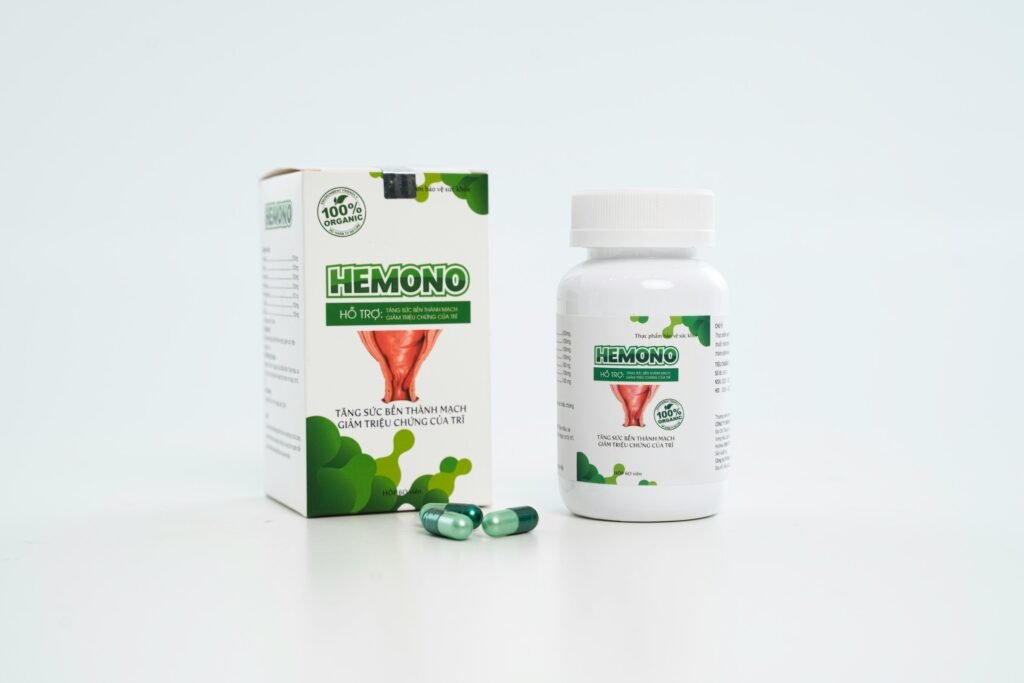
Introduction: Understanding Digestive Health
The digestive system plays a crucial role in maintaining overall well-being, serving as the body’s primary means of breaking down food and absorbing essential nutrients. A healthy digestive system is not just about proper digestion; it significantly influences energy levels, immune function, and overall health. When the digestive system operates efficiently, it ensures that the body receives the necessary vitamins, minerals, and nutrients vital for optimal functioning.
Nutrition is intricately tied to digestive health, as the types of food consumed can either support or hinder digestive efficiency. For instance, a diet rich in fiber, probiotics, and healthy fats can enhance gut health, while an excess of processed foods, sugars, and unhealthy fats can lead to various digestive issues, such as bloating, gas, and constipation. The connection is clear: what we eat directly impacts how our digestive system performs and, consequently, our energy levels and immunity.
Moreover, the health of the digestive system can influence the body’s ability to combat infections and diseases. A balanced gut flora supports a strong immune response, thereby enhancing resilience against various ailments. Conversely, digestive discomfort and irregularities can lead to fatigue, irritability, and an increased likelihood of illness, which can substantially affect quality of life.
Given the vital role of digestive health in an individual’s overall well-being, it is essential to explore natural, budget-friendly methods to improve digestion. Addressing digestive issues through accessible and cost-effective means not only promotes a healthier lifestyle but also fosters long-term wellness. In subsequent sections, we will delve into practical strategies to enhance digestive health naturally, ensuring that individuals can maintain an efficient digestive system without significant financial burden.
The Role of Diet in Digestive Health
A balanced diet plays a crucial role in maintaining optimal digestive health. The foods we consume can significantly impact how our digestive system functions, influencing everything from nutrient absorption to gut motility. Key food groups that should be included in a diet aimed at improving digestive wellness consist of fiber-rich foods, fruits, vegetables, and whole grains. These components not only promote regular bowel movements but also support a healthy gut microbiome.
Fiber, in particular, is an essential nutrient that aids digestion. It is classified into two types: soluble and insoluble. Soluble fiber, found in foods like oats, beans, and apples, can help regulate blood sugar levels and promote feelings of fullness, while insoluble fiber, abundant in whole grains and leafy vegetables, assists in bulking up stool and preventing constipation. Striving to include a variety of fiber sources in everyday meals can be beneficial for enhancing digestive health.
Incorporating fruits and vegetables into one’s diet is another pivotal strategy for supporting digestive wellness. These foods are not only naturally low in calories but also rich in vitamins, minerals, and antioxidants. Fruits such as berries and bananas offer digestive benefits through their fiber content, while vegetables, particularly those consumed raw or lightly cooked, can provide essential nutrients that promote gut health. Aiming for a colorful plate can help ensure a diverse intake of nutrients.
Whole grains, as opposed to refined grains, deliver more fiber and nutrients that can enhance digestive functions. Options such as brown rice, quinoa, and whole wheat bread can replace their white counterparts with minimal effort. Small changes in meal preparation and selection can encourage healthier eating habits. Overall, a diet that emphasizes fiber-rich foods, fruits, vegetables, and whole grains can be instrumental in fostering a robust digestive system, contributing to overall health and well-being.

Hydration: The Key to Digestive Function
Maintaining proper hydration is fundamental to ensuring the digestive system functions effectively. Water plays a crucial role in various digestive processes, aiding not only in the breakdown of food but also in the absorption of nutrients. When we consume food, water is necessary for the salivary glands to produce saliva, which begins the digestion process in the mouth. Furthermore, once food reaches the stomach, adequate hydration helps in the production of gastric juices, enhancing the digestive breakdown of food particles.
One significant benefit of hydration is its ability to prevent constipation. Insufficient fluid intake can lead to hard and dry stools, making them difficult to pass. This discomfort can often be alleviated by ensuring the body receives enough water to maintain healthy bowel movements. Drinking sufficient water softens stools and supports the intestinal contractions that aid in a smooth digestion process. Therefore, a well-hydrated body is essential for promoting regular and comfortable bowel movements.
Additionally, proper hydration supports the body’s capability to absorb essential nutrients. Water is a solvent that allows vitamins and minerals to be transported efficiently through the bloodstream to where they are required. A dehydrated body may struggle with nutrient absorption, leading to potential deficiencies over time. Thus, sustaining adequate fluid intake becomes particularly important after meals, as it enhances overall nutrient assimilation in the digestive tract.
To ensure that hydration is adequate throughout the day, individuals can incorporate certain habits. Carrying a reusable water bottle, setting reminders to drink water, and consuming fluid-rich foods such as fruits and vegetables can significantly contribute to reaching daily hydration targets. Moreover, limiting dehydrating beverages such as coffee and alcohol can also help maintain a balanced fluid level. By prioritizing hydration, individuals can bolster their digestive health and promote a more efficient digestive system.
Probiotics: Balancing Your Gut Flora Naturally
- SYNBIOTIC+ 3-IN-1 FORMULA: with prebiotics, probiotics and postbiotics to support a balanced gut microbiome. Our formula…
- MADE TRACEABLE: Our world-class scientists scoured the globe for high quality ingredients. Prebiotics PreforPro from Geo…
- SMART CAPSULE: Our innovative nested capsule is designed to thrive with it’s delayed-release technology to help the prob…
Probiotics are live microorganisms that, when consumed in adequate amounts, offer significant health benefits, particularly for gut health. These beneficial bacteria play a crucial role in maintaining a balanced gut flora, which is essential for effective digestion and overall well-being. An imbalance in gut bacteria can lead to issues such as bloating, indigestion, and other gastrointestinal disorders. Incorporating natural sources of probiotics into your diet can therefore serve as a practical approach to enhance digestive health.
Some well-known natural sources of probiotics include yogurt, kefir, sauerkraut, kimchi, and miso. Yogurt is perhaps one of the most accessible options, as it is widely available and can easily be integrated into meals. When purchasing yogurt, it is important to choose varieties that contain live active cultures, as some processed options may lack these essential probiotics. Kefir, a fermented milk drink, is another excellent source that is rich in probiotics and can be consumed on its own or added to smoothies.
Fermented foods like sauerkraut and kimchi not only add flavor to meals but also provide a potent dose of beneficial bacteria. These foods can be made at home relatively easily and affordably, or they can be purchased at health food stores. Additionally, miso, commonly used in Japanese cuisine, is a fermented soybean paste that is often added to soups and marinades. Including a variety of these probiotic-rich foods in your diet can help restore and maintain a healthy gut flora balance.
Incorporating these natural sources of probiotics doesn’t require significant financial investment. Simple adjustments in dietary habits can lead to substantial improvements in digestive health. By embracing these affordable options, individuals can promote a thriving gut environment, paving the way for better digestion and overall well-being.
- 2-in-1 Prebiotic + Probiotic: Seed DS-01 Daily Synbiotic is formulated with 24 clinically and scientifically studied pro…
- Whole-Body Benefits: In addition to bloating relief and improved regularity, DS-01 is formulated for digestive and whole…
- Engineered to Survive: Seed’s patented capsule-in-capsule ViaCap delivery technology protects probiotics through digesti…
Herbal Supplements: A Budget-Friendly Approach
Herbal supplements have garnered significant attention for their effectiveness in supporting digestive health. They provide a cost-effective and natural alternative to pharmaceuticals, allowing individuals to improve their digestive systems without straining their finances. Many herbs are renowned for their digestive benefits, acting as natural enhancers that support the body’s intrinsic processes.
One of the most popular herbal supplements is ginger. Often used to cure nausea and indigestion, ginger can stimulate saliva and bile production, facilitating smoother digestion. Drinking ginger tea or incorporating fresh ginger into meals can easily integrate this potent herb into your daily diet.
Another effective herbal option is peppermint. Known for its soothing properties, peppermint can reduce bloating and relieve gas. The menthol in peppermint works to relax the muscles of the gastrointestinal tract, promoting better digestion. Simple peppermint tea can be brewed at home or purchased as a supplement for those on the go.
Chamomile is also an excellent choice for those looking to support their digestive functions. It has calming effects that can reduce stomach discomfort and ease digestion-related issues. Chamomile tea, available in most grocery stores, is an affordable way to incorporate this herb into your routine.
Additionally, fennel seeds are celebrated for their ability to alleviate digestive problems such as gas and bloating. Chewing on raw fennel seeds post-meal can aid in digestion and serve as a refreshing breath freshener as well.
By integrating these herbal supplements into your daily life, you can enhance your digestive system’s performance while keeping your expenses in check. They represent a natural, effective approach to maintaining comprehensive digestive health, complementing a balanced diet and promoting overall well-being without excessive financial commitment.
Exercise: Enhancing Digestive Function Naturally
Physical activity plays a pivotal role in maintaining a healthy digestive system. Regular exercise aids digestion by promoting the efficient movement of food through the gastrointestinal tract. Activities such as walking, jogging, or cycling stimulate the muscles in the gastrointestinal system, facilitating the process of breaking down food. This natural mechanism proves essential in preventing conditions like bloating and constipation, as a well-functioning digestive system is invariably linked to an active lifestyle.
Moreover, engaging in physical activity encourages the production of gastrointestinal hormones, which enhance digestion further. For instance, squats or yoga can engage core muscles, fostering a more effective digestive process. Such exercises stimulate the body while also contributing to overall well-being, making them a beneficial part of any daily routine.
Many effective forms of exercise are budget-friendly and can easily be incorporated into daily life. Walking is one of the simplest yet most impactful activities. A brisk 30-minute walk not only helps improve digestion but also strengthens the heart and boosts mood. Additionally, families can opt for outdoor activities, such as playing soccer or riding bikes, which allows for enjoyment while reaping health benefits.
For those seeking more structured routines, home workout videos focused on core strength can provide excellent options. Exercises like planks, crunches, or even gentle stretching can significantly impact digestive health without the need for a gym membership or costly equipment. By integrating these activities into one’s routine, individuals can foster a more efficient digestive system and lead a healthier life overall.
Stress Management and Its Impact on Digestion
Stress is a prevalent issue that can significantly impact various aspects of health, particularly the digestive system. When an individual experiences stress, the body enters a state of “fight or flight,” which can divert energy away from digestive processes. This reaction can lead to disrupted digestion, resulting in symptoms such as bloating, gas, and indigestion. Prolonged exposure to stress can exacerbate these issues, contributing to ailments like irritable bowel syndrome (IBS) and acid reflux. Therefore, managing stress effectively is crucial for maintaining a healthy digestive system.
Several natural techniques can help alleviate stress and, in turn, promote better digestive health. One effective method is mindfulness, which encourages individuals to focus on the present moment rather than worry about past or future events. Practicing mindfulness can reduce anxiety and foster a sense of calm, positively impacting digestion. Simple techniques like mindful eating, where one pays attention to flavors and textures, can improve not only the overall eating experience but also the efficiency of digestion.
Another beneficial practice is yoga. This ancient discipline combines physical postures, breathing techniques, and meditation, all of which can reduce stress levels. Specific yoga poses are known to enhance circulation in the abdominal region and stimulate digestive organs. Regular yoga sessions can encourage relaxation and provide a holistic approach to stress management.
Additionally, deep breathing exercises serve as an effective tool for calming the mind and body. These exercises can be performed anywhere and at any time, requiring minimal resources. Techniques such as diaphragmatic breathing, which involves taking slow, deep breaths, can help activate the body’s relaxation response. Integrating these practices into daily routines can yield significant benefits for both mental health and digestive function. Each of these approaches highlights the integral connection between stress management and digestive well-being.
Identifying and Avoiding Food Sensitivities
Understanding food sensitivities is crucial for maintaining a healthy digestive system. Food sensitivities can often lead to various gastrointestinal issues, including bloating, gas, and stomach discomfort. It is essential to identify these intolerances to eliminate the stress they cause on your digestive tract and improve overall well-being. The first step in recognizing food sensitivities is to maintain a food diary. By logging specific symptoms alongside your food intake, you may begin to notice patterns that indicate problem foods.
Common food sensitivities include gluten, dairy, soy, and certain food additives. For instance, individuals with lactose intolerance may experience digestive discomfort after consuming dairy products. Similarly, those intolerant to gluten may suffer from bloating and gas following the consumption of wheat products. Once you identify potential trigger foods, the next step is to eliminate them from your diet for a designated period, often around three to four weeks.
During this elimination phase, it is vital to monitor your symptoms. If you notice significant improvement in your digestive health, you may decide to reintroduce these foods one at a time, allowing you to ascertain which specific items are problematic. This methodical approach ensures you can enjoy a varied diet while being mindful of what harms your digestive system.
For those on a budget, there are numerous affordable alternatives to common trigger foods. For example, if dairy is an issue, consider plant-based milk options such as almond or oat milk. Similarly, gluten-free grains like quinoa and brown rice can be purchased without breaking the bank. By thoughtfully navigating your dietary sensitivities, you can foster a healthier digestive system while maintaining fiscal responsibility.
Conclusion: Your Path to a Healthier Digestive System
Throughout this article, we have explored various natural methods to enhance your digestive system while remaining budget-conscious. By incorporating simple dietary changes, utilizing herbal remedies, and maintaining a consistent exercise routine, individuals can improve their digestive health without incurring significant expenses. Each of these strategies not only fosters better digestion but also contributes to overall well-being.
Emphasizing healthy eating is crucial; consuming fiber-rich foods, along with adequate hydration, can significantly assist in maintaining a well-functioning digestive system. Additionally, the role of probiotics cannot be overstated; these beneficial bacteria are instrumental in promoting gut health. Incorporating fermented foods into one’s diet or considering affordable probiotic supplements can provide the necessary support for optimal digestion.
Physical activity has also emerged as a vital component, encouraging regular bowel movements and alleviating issues related to sluggish digestion. Incorporating simple exercises, like walking or yoga, can make a substantial difference in digestive health. Equally important is managing stress effectively, as heightened stress levels can disrupt digestive functions. Employing relaxation techniques, mindfulness, or even spending time in nature can diminish stress and support a healthier digestive tract.
Consistency is key in maintaining these practices. Integrating these natural methods into daily routines can yield long-term benefits. Adopting a proactive approach toward digestive health will promote vitality and enhance the quality of life. By making informed choices and remaining dedicated to these changes, individuals can pave a path toward improved digestive wellness.
In a conclusion, it is evident that enhancing your digestive health need not be complicated or expensive; rather, it can be a straightforward journey of regular, mindful choices. Taking these steps towards nurturing your digestive system will ultimately lead to a healthier, more fulfilling life.




